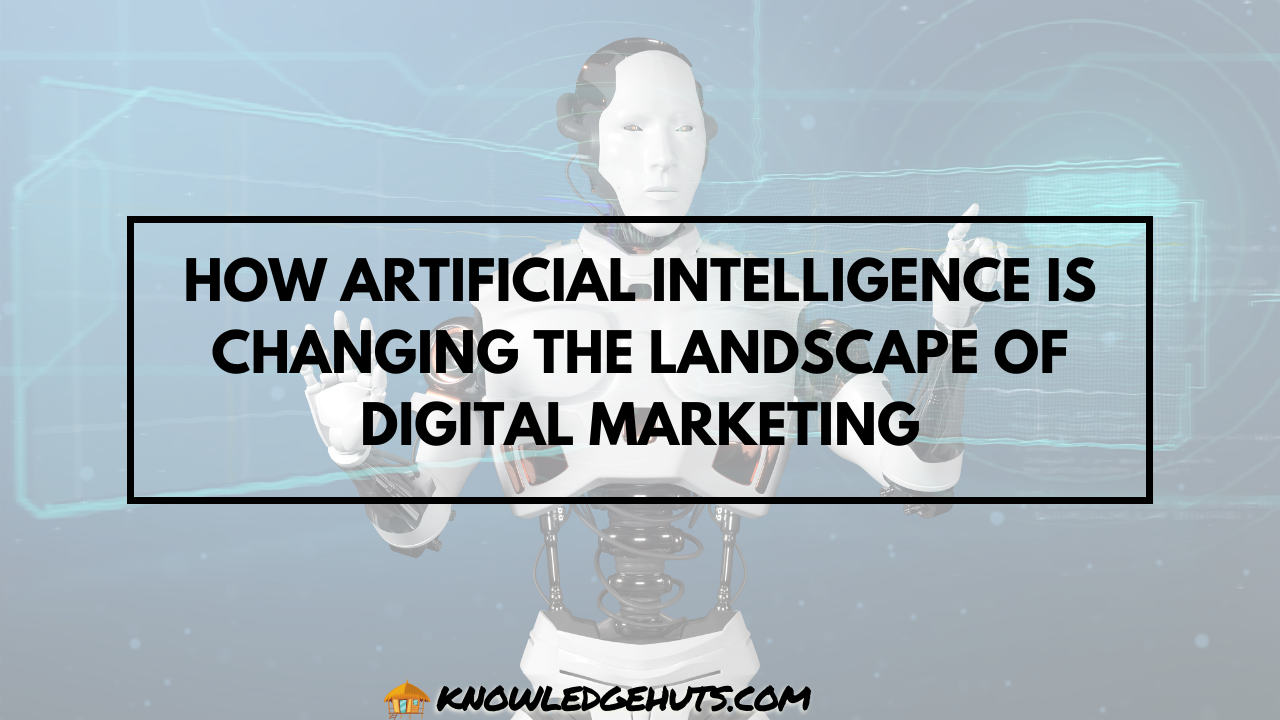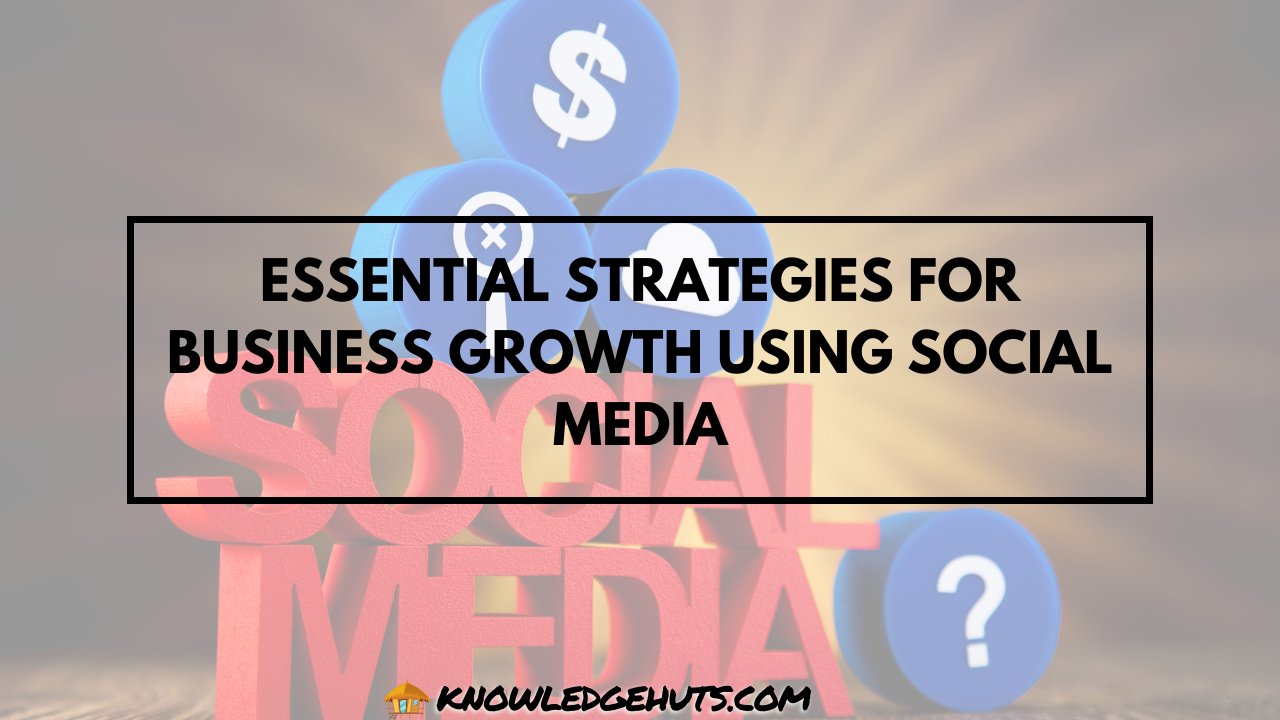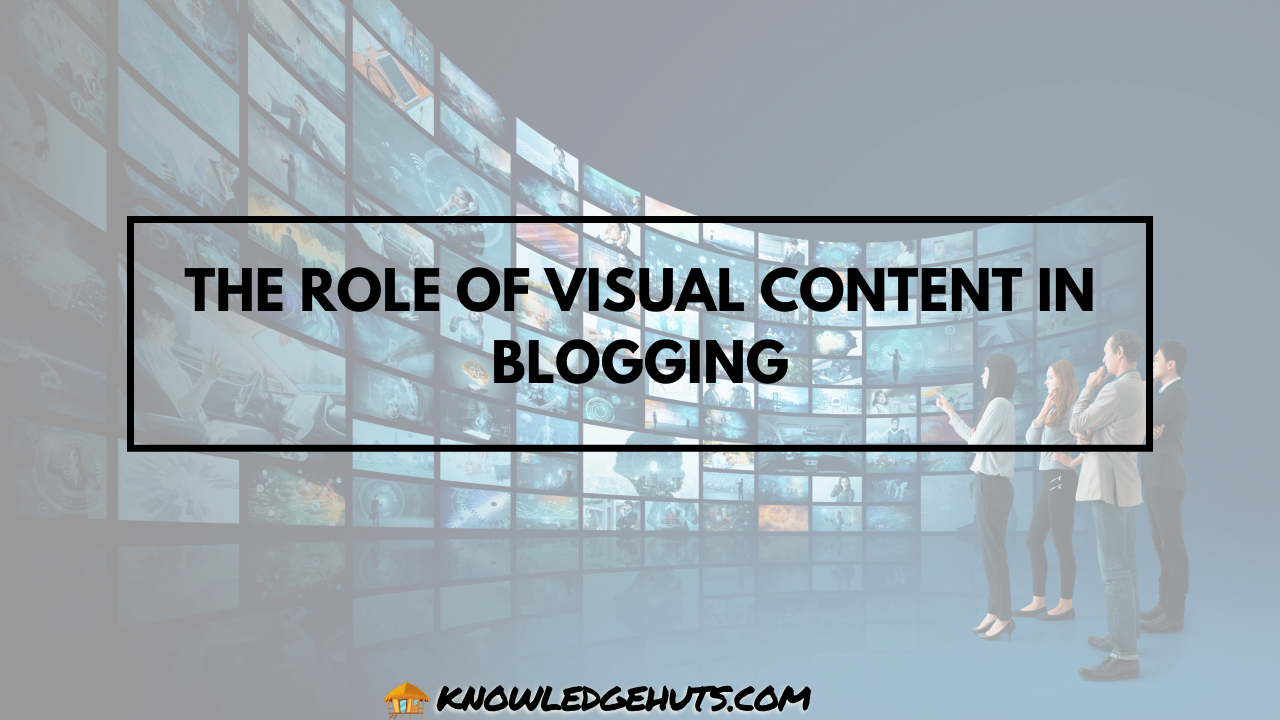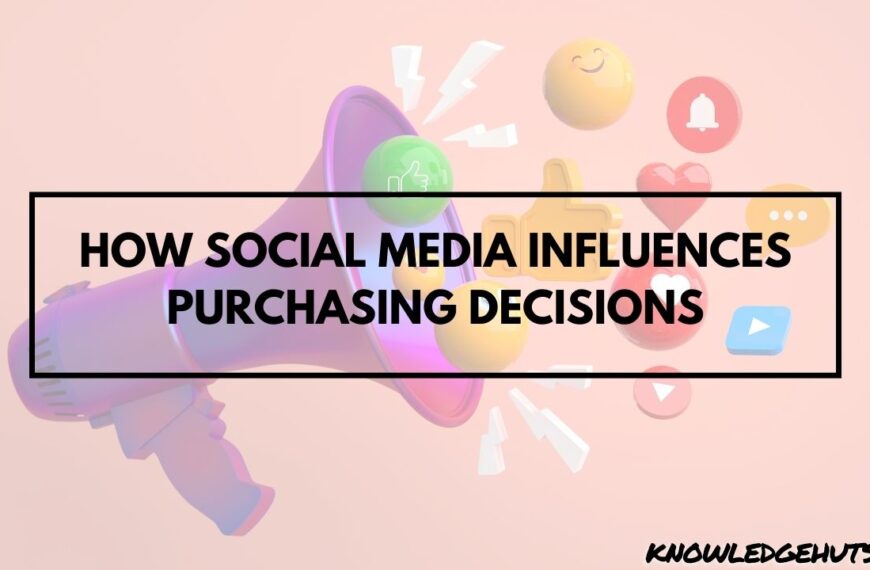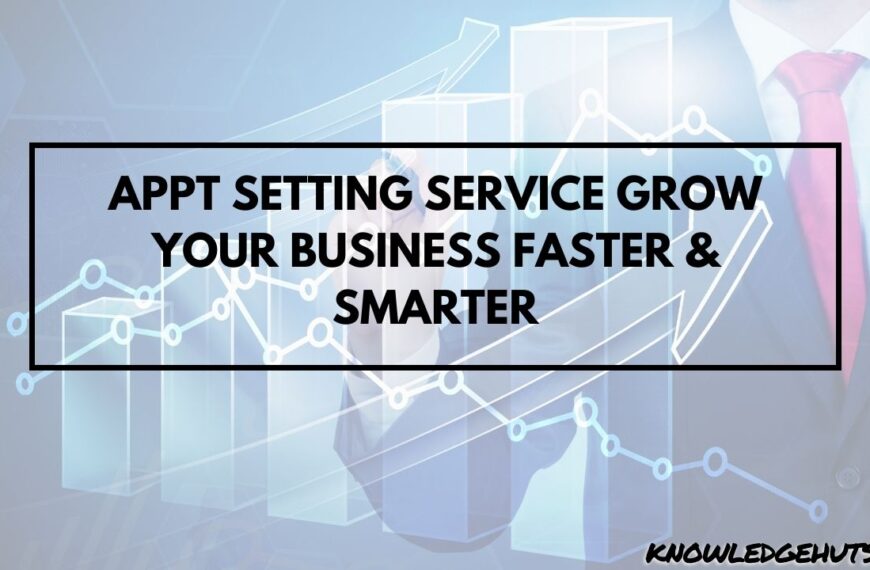Artificial Intelligence (AI) has become a game-changer in many industries, and digital marketing is no exception. From personalized content recommendations to predictive analytics, AI is revolutionizing the way businesses connect with their audiences, optimize their strategies, and achieve their goals. As AI technologies continue to evolve, their impact on digital marketing will only grow, offering new opportunities and challenges for marketers.
In this comprehensive blog post, we will explore how AI is changing the landscape of digital marketing, the benefits it offers, the challenges it presents, and the future trends that will shape the industry. Whether you’re a seasoned marketer or just starting out, understanding the role of AI in digital marketing is essential for staying competitive in today’s dynamic environment.
Understanding Artificial Intelligence in Digital Marketing
Before diving into the specific ways AI is transforming digital marketing, it’s important to understand what AI is and how it functions within this context.
What is Artificial Intelligence?
Artificial Intelligence (AI) refers to the simulation of human intelligence in machines that are designed to perform tasks that typically require human intelligence. These tasks include learning, reasoning, problem-solving, perception, and language understanding. In digital marketing, AI is used to analyze data, predict outcomes, automate tasks, and create personalized experiences for users.
How AI is Integrated into Digital Marketing
AI is integrated into digital marketing through various technologies, including machine learning, natural language processing (NLP), and computer vision. These technologies enable marketers to analyze vast amounts of data, identify patterns, and make data-driven decisions that enhance the effectiveness of their campaigns.
Key AI Technologies in Digital Marketing:
- Machine Learning (ML): Machine learning algorithms analyze data to identify trends, predict future behavior, and automate processes. ML models improve over time as they process more data, making predictions and recommendations more accurate.
- Natural Language Processing (NLP): NLP allows AI systems to understand, interpret, and generate human language. In digital marketing, NLP is used in chatbots, content creation, and sentiment analysis.
- Computer Vision: Computer vision enables AI to interpret and understand visual content, such as images and videos. This technology is used in visual search, content recognition, and personalized marketing.
Example Table: AI Technologies in Digital Marketing
| AI Technology | Description | Application in Digital Marketing |
|---|---|---|
| Machine Learning (ML) | Algorithms that learn from data to improve over time | Predictive analytics, customer segmentation |
| Natural Language Processing (NLP) | Understanding and generating human language | Chatbots, content creation, sentiment analysis |
| Computer Vision | Interpretation of visual content | Visual search, image recognition, personalized ads |
The Benefits of AI in Digital Marketing
AI offers numerous benefits that are transforming the way businesses approach digital marketing. These benefits are helping marketers to optimize their strategies, improve customer engagement, and drive better results.
Enhanced Personalization
One of the most significant advantages of AI in digital marketing is the ability to deliver highly personalized experiences to users. Personalization involves tailoring content, offers, and interactions to individual users based on their preferences, behavior, and demographics.
How AI Enhances Personalization:
- Content Recommendations: AI algorithms analyze user behavior, such as browsing history and past interactions, to recommend content that is most relevant to each user. This can be seen in platforms like Netflix or Amazon, where users receive personalized recommendations for shows, movies, or products.
- Dynamic Pricing: AI can adjust prices in real-time based on factors such as demand, competition, and user behavior. This allows businesses to offer personalized pricing to individual customers, increasing the likelihood of conversion.
- Targeted Advertising: AI enables marketers to create highly targeted ads by analyzing user data and identifying specific audience segments. This ensures that ads are shown to the right people at the right time, leading to higher engagement and conversion rates.
Quote: “AI-powered personalization is transforming digital marketing by delivering tailored experiences that resonate with individual users. This level of customization is driving higher engagement and stronger customer relationships.” — Neil Patel, Digital Marketing Expert
Improved Customer Insights
AI provides marketers with deeper insights into customer behavior and preferences, allowing them to make more informed decisions and optimize their strategies. By analyzing large datasets, AI can identify patterns and trends that may not be immediately apparent to human analysts.
Key Areas Where AI Improves Customer Insights:
- Predictive Analytics: AI-driven predictive analytics helps marketers forecast customer behavior, such as predicting which users are most likely to make a purchase or churn. This allows businesses to take proactive measures to retain customers and increase sales.
- Customer Segmentation: AI can automatically segment customers based on various criteria, such as demographics, purchase history, and behavior. This enables marketers to create targeted campaigns that resonate with specific audience segments.
- Sentiment Analysis: NLP-powered sentiment analysis tools can analyze customer feedback, social media posts, and reviews to gauge public sentiment toward a brand or product. This provides valuable insights into customer satisfaction and areas for improvement.
Example Table: AI Applications for Customer Insights
| Application | Description | Benefits |
|---|---|---|
| Predictive Analytics | Forecasting customer behavior based on historical data | Informed decision-making, proactive marketing |
| Customer Segmentation | Automatically grouping customers based on criteria | Targeted campaigns, personalized experiences |
| Sentiment Analysis | Analyzing customer feedback to gauge sentiment | Identifying areas for improvement, enhancing brand perception |
Automation and Efficiency
AI is streamlining digital marketing processes by automating repetitive tasks, allowing marketers to focus on more strategic activities. Automation not only saves time but also reduces the risk of human error, leading to more efficient and effective marketing campaigns.
Examples of AI-Driven Automation:
- Email Marketing: AI can automate email marketing campaigns by personalizing content, segmenting audiences, and optimizing send times based on user behavior. Tools like Mailchimp and HubSpot use AI to improve email open rates and engagement.
- Ad Optimization: AI-powered platforms like Google Ads use machine learning to automatically optimize ad campaigns by adjusting bids, targeting, and creative elements in real-time. This ensures that ad budgets are spent efficiently and effectively.
- Social Media Management: AI tools like Buffer and Hootsuite automate social media posting, content curation, and engagement tracking, allowing marketers to manage multiple accounts and campaigns with ease.
Quote: “AI-driven automation is revolutionizing digital marketing by taking over repetitive tasks and optimizing campaigns in real-time. This allows marketers to focus on strategy and creativity, leading to more successful outcomes.” — Ann Handley, Chief Content Officer at MarketingProfs
Enhanced User Experience
AI is playing a crucial role in enhancing the user experience (UX) across digital platforms. By understanding user behavior and preferences, AI can create more intuitive, engaging, and responsive experiences that keep users coming back.
AI-Driven Enhancements in UX:
- Chatbots and Virtual Assistants: AI-powered chatbots and virtual assistants provide instant, personalized support to users, answering questions, guiding them through processes, and resolving issues. This improves customer satisfaction and reduces the burden on human support teams.
- Voice Search Optimization: With the rise of voice-activated devices like Amazon Echo and Google Home, AI is helping businesses optimize their content for voice search. This involves using NLP to understand and respond to voice queries accurately.
- Website Personalization: AI can dynamically adjust website content, layout, and offers based on the user’s behavior, location, and preferences. This creates a more personalized and relevant experience for each visitor.
Example Table: AI Applications for Enhancing User Experience
| Application | Description | UX Benefits |
|---|---|---|
| Chatbots and Virtual Assistants | Providing instant, personalized support to users | Improved customer satisfaction, reduced support workload |
| Voice Search Optimization | Optimizing content for voice-activated devices | Enhanced accessibility, better search rankings |
| Website Personalization | Dynamically adjusting content and layout based on user data | More relevant user experience, higher engagement |
Challenges of AI in Digital Marketing
While AI offers numerous benefits, it also presents challenges that marketers need to address to fully leverage its potential. These challenges include data privacy concerns, the need for specialized skills, and the risk of over-reliance on automation.
Data Privacy and Security
One of the biggest challenges of using AI in digital marketing is ensuring data privacy and security. AI relies on vast amounts of data to function effectively, but this data often includes sensitive information about customers.
Key Data Privacy Concerns:
- Compliance with Regulations: Marketers must ensure that their AI-driven campaigns comply with data protection regulations, such as the General Data Protection Regulation (GDPR) in Europe and the California Consumer Privacy Act (CCPA) in the United States. Non-compliance can result in hefty fines and damage to the brand’s reputation.
- Data Security: Storing and processing large amounts of customer data increases the risk of data breaches. Marketers need to implement robust security measures to protect this data from unauthorized access and cyberattacks.
- Consumer Trust: As consumers become more aware of data privacy issues, they are increasingly concerned about how their data is being used. Marketers need to be transparent about their data practices and give users control over their personal information.
Strategies to Address Data Privacy Challenges:
- Implement Strong Security Protocols: Use encryption, secure servers, and regular security audits to protect customer data.
- Obtain Informed Consent: Ensure that users are fully informed about how their data will be used and obtain their explicit consent before collecting it.
- Stay Up-to-Date with Regulations: Regularly review and update your data practices to ensure compliance with the latest regulations.
Skill Gaps and Training
Another challenge of integrating AI into digital marketing is the skill gap that exists within many organizations. AI technologies are complex, and effectively implementing them in marketing strategies requires a certain level of expertise in data science, machine learning, and AI programming. Many marketing teams may lack the necessary skills to fully leverage AI’s potential.
Challenges Related to Skill Gaps:
- Specialized Knowledge Required: AI involves complex algorithms, data analysis, and programming skills that are not typically part of traditional marketing education. Marketers need to understand how AI works to apply it effectively.
- Training and Upskilling: To bridge the skill gap, organizations need to invest in training and upskilling their marketing teams. This requires time and resources, and may involve formal education, online courses, or hands-on workshops.
- Dependence on AI Specialists: Organizations that lack in-house AI expertise may become overly dependent on external consultants or AI specialists, which can be costly and may limit the organization’s ability to innovate independently.
Strategies to Address Skill Gaps:
- Invest in Training Programs: Provide ongoing training opportunities for marketing teams to learn about AI and related technologies. This can include courses on data analysis, machine learning, and AI applications in marketing.
- Hire AI Specialists: Consider hiring AI specialists and data scientists who can work alongside the marketing team to implement AI-driven strategies effectively.
- Leverage AI Tools with User-Friendly Interfaces: Use AI tools that offer intuitive interfaces and do not require extensive technical knowledge to operate. Many AI-powered marketing platforms are designed to be accessible to non-technical users, making it easier for marketers to adopt AI.
Example Table: Addressing Skill Gaps in AI for Digital Marketing
| Challenge | Description | Solution |
|---|---|---|
| Specialized Knowledge Required | AI involves complex algorithms and programming | Invest in targeted training programs, hire AI specialists |
| Training and Upskilling | Marketers need education on AI technologies | Provide ongoing training and development opportunities |
| Dependence on AI Specialists | Over-reliance on external experts | Build in-house expertise, use user-friendly AI tools |
Over-Reliance on Automation
While automation is one of AI’s greatest strengths, there is a risk of over-reliance on automated systems in digital marketing. Over-automation can lead to a loss of human touch, reducing the effectiveness of marketing campaigns and potentially alienating customers.
Risks of Over-Reliance on Automation:
- Loss of Personalization: Automated systems may not always capture the nuances of human behavior, leading to less personalized and less effective marketing messages.
- Customer Dissatisfaction: Over-automated customer interactions, such as chatbots that cannot handle complex queries, can frustrate customers and damage the brand’s reputation.
- Reduced Creativity: Automation can lead to a reliance on data-driven decisions at the expense of creative thinking. Marketing strategies that rely solely on AI-driven insights may miss out on innovative ideas that come from human creativity.
Strategies to Balance Automation and Human Touch:
- Human-AI Collaboration: Use AI to handle repetitive tasks and data analysis while allowing human marketers to focus on creativity, strategy, and personal interactions with customers.
- Monitor and Adjust Automated Systems: Regularly review and adjust automated marketing campaigns to ensure they are delivering the desired results and maintain a personal touch.
- Prioritize Human Interaction in Customer Service: Ensure that automated customer service systems, such as chatbots, have clear escalation paths to human agents when complex issues arise.
Quote: “AI and automation can greatly enhance marketing efficiency, but it’s important to remember that marketing is still about human connections. The best strategies combine the power of AI with the creativity and empathy that only humans can provide.” — Seth Godin, Marketing Guru
The Future of AI in Digital Marketing
As AI technologies continue to evolve, their impact on digital marketing will deepen, bringing new opportunities and challenges. Understanding the future trends in AI-driven digital marketing will help businesses stay ahead of the curve and continue to innovate in a rapidly changing landscape.
AI-Powered Predictive Analytics
Predictive analytics is already a significant aspect of AI in digital marketing, and its role will only grow in the future. AI-powered predictive analytics tools will become more sophisticated, enabling marketers to make even more accurate predictions about customer behavior, market trends, and campaign performance.
Future Applications of Predictive Analytics:
- Hyper-Personalization: Predictive analytics will allow for hyper-personalization, where every aspect of the customer experience, from product recommendations to marketing messages, is tailored to individual preferences and behaviors.
- Real-Time Decision Making: AI-driven predictive analytics will enable real-time decision-making, allowing marketers to adjust their strategies on the fly based on live data.
- Enhanced Customer Retention: By predicting which customers are at risk of churning, marketers can proactively engage with them through personalized offers, content, and support to improve retention rates.
AI-Driven Content Creation
AI is already being used to create content, but the future will see even more advanced AI-driven content creation tools. These tools will be able to generate high-quality content that is indistinguishable from human-created content, enabling marketers to scale their content strategies more efficiently.
Advancements in AI-Driven Content Creation:
- Natural Language Generation (NLG): AI-powered NLG tools will become more sophisticated, capable of generating complex articles, reports, and even creative writing with minimal human input.
- Content Personalization at Scale: AI will enable marketers to create personalized content at scale, tailoring articles, emails, and social media posts to individual audience segments.
- Visual and Video Content Creation: AI-driven tools for creating visual and video content will become more advanced, allowing for the automated generation of high-quality graphics, videos, and animations.
Example Table: Future Trends in AI-Driven Content Creation
| Trend | Description | Impact on Marketing |
|---|---|---|
| Natural Language Generation (NLG) | AI tools generating complex written content | Scalable content strategies, reduced content creation time |
| Content Personalization at Scale | Creating tailored content for individual segments | Improved engagement, higher conversion rates |
| Visual and Video Content Creation | Automated generation of visual and video content | Enhanced multimedia marketing, reduced production costs |
AI in Voice Search and Virtual Assistants
The rise of voice search and virtual assistants like Siri, Alexa, and Google Assistant is transforming how consumers interact with brands online. AI will play a critical role in optimizing content for voice search and enhancing the capabilities of virtual assistants.
Future of AI in Voice Search and Virtual Assistants:
- Voice Search Optimization: AI will enable more precise voice search optimization, ensuring that content is easily discoverable by voice-activated devices.
- Conversational AI: Virtual assistants will become more conversational and capable of handling complex queries, offering personalized recommendations and interacting with users in a more natural manner.
- Integration with E-commerce: Virtual assistants will increasingly be integrated with e-commerce platforms, allowing users to make purchases, track orders, and receive personalized shopping recommendations through voice commands.
Ethical AI and Transparent Marketing
As AI becomes more integrated into digital marketing, there will be growing emphasis on ethical AI practices and transparency in how AI-driven marketing is conducted. Consumers and regulators alike will demand greater accountability from businesses using AI.
Future Focus on Ethical AI:
- Bias Mitigation: AI systems will need to be designed and trained to minimize biases, ensuring fair and equitable marketing practices.
- Transparency in AI Use: Businesses will need to be transparent about how they use AI in their marketing efforts, including how customer data is collected and processed.
- Consumer Control: AI-driven marketing will increasingly allow consumers to have control over their data and the AI-driven recommendations they receive, enhancing trust and engagement.
Quote: “The future of AI in marketing will be defined not just by technological advancements, but by how responsibly we use these tools. Ethical AI practices will be essential for building consumer trust and ensuring that AI benefits everyone.” — Tim Berners-Lee, Inventor of the World Wide Web
Conclusion
Artificial Intelligence is undeniably transforming the landscape of digital marketing, offering unprecedented opportunities for personalization, efficiency, and customer engagement. From predictive analytics to AI-driven content creation, the potential applications of AI in marketing are vast and continually expanding.
However, as AI becomes more deeply embedded in marketing strategies, businesses must also navigate the challenges it presents, including data privacy concerns, skill gaps, and the risk of over-reliance on automation. By addressing these challenges and adopting responsible AI practices, marketers can harness the power of AI to drive innovation, improve customer experiences, and achieve their business goals.
As we look to the future, the role of AI in digital marketing will only continue to grow, bringing new tools, techniques, and trends that will shape the industry for years to come. By staying informed and embracing the latest AI-driven innovations, marketers can ensure that they remain at the forefront of this exciting and dynamic field.
